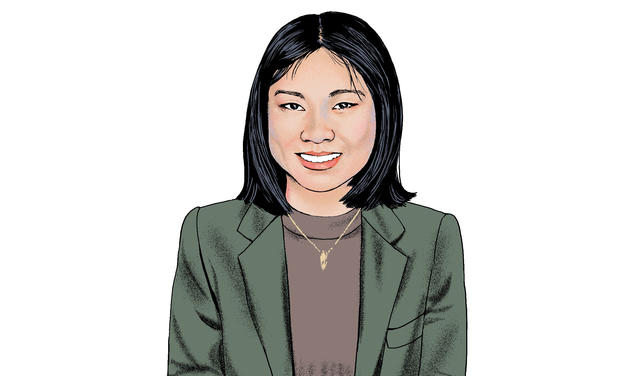
One of the most distinctive honors in the world starts with a phone call that asks: “Are you sitting down?”
Naomi Leonard ’85 was not. The professor of mechanical and aerospace engineering was walking to a meeting when she got the call in 2004 from the MacArthur Foundation about her selection to receive the so-called “genius grant.” She was late to the meeting, but couldn’t tell her colleagues why for another week.
Astrophysicist David Spergel ’82 was at his desk, working — on something he can’t remember, something significantly less memorable than the call he’d soon receive.
“Someone just calls you out of the blue,” said Spergel, who was awarded the grant in 2001. The MacArthur Foundation, which selects 20 to 25 recipients each year based on their creativity and potential, prefers to call the well-known prize the MacArthur Fellowship.
Leonard and Spergel are among a small group of alumni on the faculty who are MacArthur fellows. Since 2005, engineer Ted Zoli ’88 and historian Emily Thompson *92 each have received the fellowship, a grant of $500,000 paid out over five years.
The fellowship, with its visibility and no-strings-attached policy, encourages risk-taking and offers the financial peace of mind to do so. (This year’s winners were to be announced in late September, too late to be included in this issue.)
Leonard said the fellowship gave her the chance to consider potentially rewarding projects without worrying about whether she could afford to do them. She since has collaborated with biologists, psychologists, and even a choreographer.
There also are other perks.
“The first thing I did when I got the money was I bought a foosball table,” Spergel said. “That didn’t take up too much of the money, though.”
What the MacArthur grant really offers, he said, is time. The main focus of his research at the time was the WMAP satellite, then recently launched, which researchers hoped would help answer fundamental questions about the universe. Soon after he was awarded the fellowship, the data from the project came in.
“It gave me the resources so that, with three kids, I was able to devote a lot of time to the analysis and the interpretation of the data,” said Spergel, who put much of the money into his children’s college fund. His research results helped illustrate for the first time a comprehensive picture of the universe, from its composition to its age. The paper that came out of the research is the most-cited paper in physics in this century — “a short century,” he admitted.
“Money buys time,” Spergel said. “And time is what you need to do research.”
The fellowship also provides something else, Zoli said: the impetus to work on problems that are overlooked by private industry.
“Part of what went through my mind was, what should I be doing?” said Zoli, a visiting lecturer in civil and environmental engineering who received a MacArthur grant in 2009. “I don’t need the money. What I would like to do with the money is build projects with it.”
Zoli, the chief bridge engineer for architecture and engineering firm HNTB, plans to use the entire grant for projects such as creating a lightweight synthetic rope bridge, which could serve communities in rural mountainous areas.
“As a practicing engineer, I think we should be exploring problems that the industry is not very interested in solving — because there’s very little money to be made in making rural bridges in mountainous regions, or low-cost shelters,” said Zoli, who hopes to begin construction on one of his projects next year.
One of the rarest opportunities afforded to grant recipients is the chance to meet other fellows, an accomplished group that includes activists, writers, scientists, and craftsmen.










0 Responses